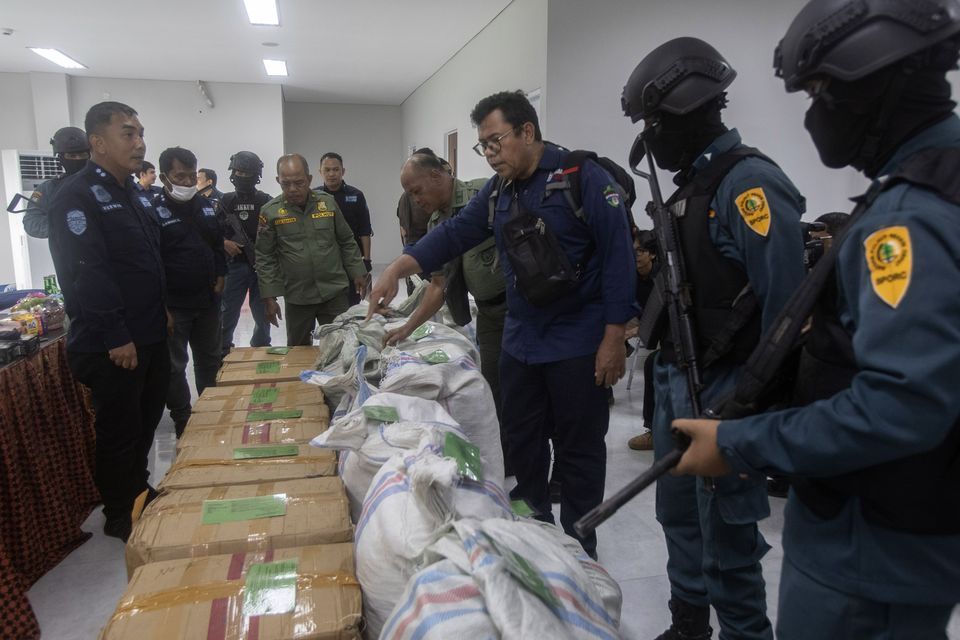Indonesian authorities said on Tuesday that they have foiled a plot to smuggle more than a ton of scales from endangered pangolins worth more than a million US dollars.
The 1.2 tons of scales worth 1.3 million dollars (£1.03 million) were found in the Asahan district of North Sumatra province on November 11 and were apparently meant to be sent to China via Malaysia and Singapore, said Rasio Ridho Sani, director-general of law enforcement at the environment ministry.
Mr Sani told a news conference that four suspects, including three army members, were found with some of the scales and will be charged with illegal possession of carcasses of protected animals.
He said further investigation led to the recovery of the rest of the scales at a house owned by one suspect in Asahan.
The four men, if found guilty, face up to 20 years in prison and 314,000 dollars (£250,000) in fines.
An Indonesian environment ministry official inspects sacks and boxes containing pangolin scales confiscated from suspected smugglers in Medan, North Sumatra (Binsar Bakkara/AP)
Mr Sani estimated that the scales came from at least 5,900 dead pangolins.
Demand for pangolin scales and meat has led to rampant poaching that is decimating populations across Asia.
Pangolin scales are used in traditional Chinese medicine and contain the protein keratin, though there is no scientific proof that they provide any medicinal value.
Pangolin meat is considered a delicacy in Vietnam and some parts of China.
Of the four Asian species, one is listed as endangered and the others as critically endangered by the Convention on International Trade in Endangered Species of Wild Fauna and Flora, or Cites, and it is illegal to trade them.
“Killing thousands of pangolins will disrupt the balance of nature and damage the ecosystem, thereby harming the environment and society,” Mr Sani said.
“The suspects must be punished to the maximum sentence so that there is a deterrent effect.”
Indonesian authorities have foiled eight plots to smuggle pangolins or their scales this year, mostly on Sumatra island, indicating high market demand, Mr Sani added.
